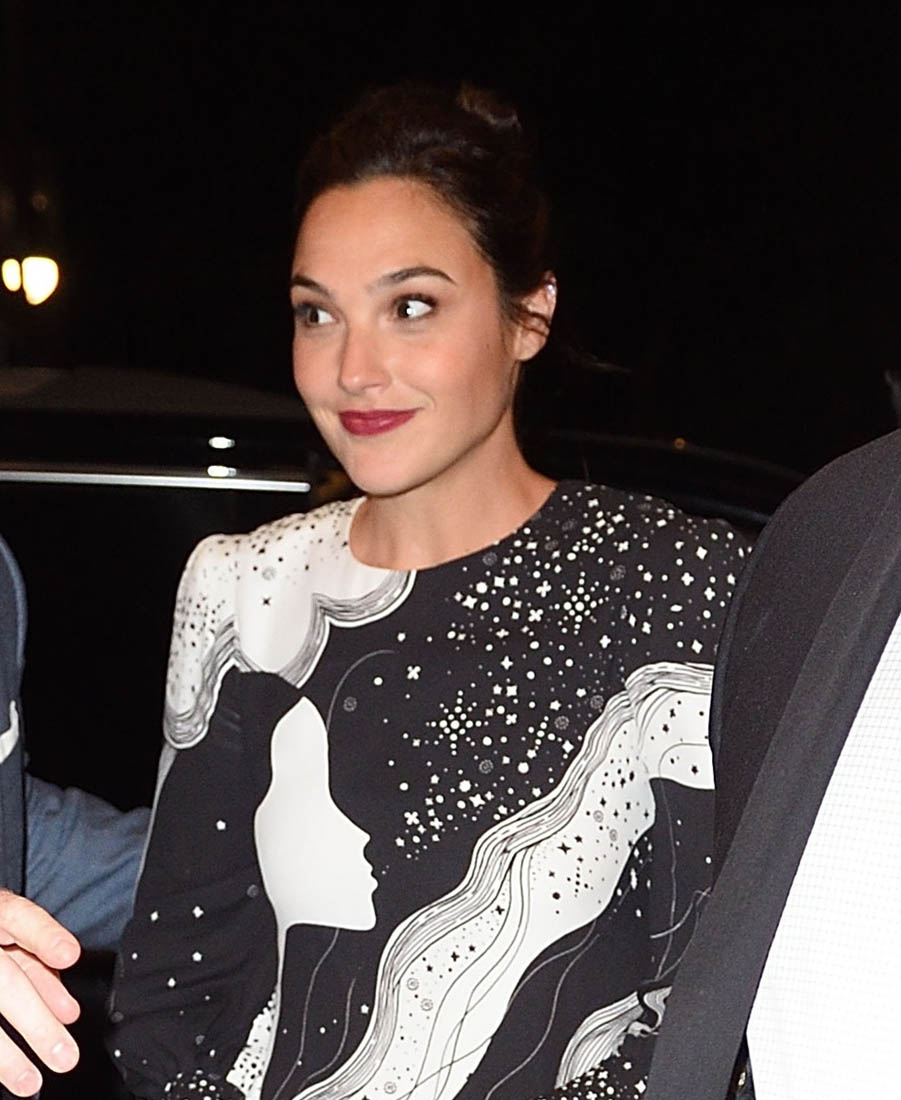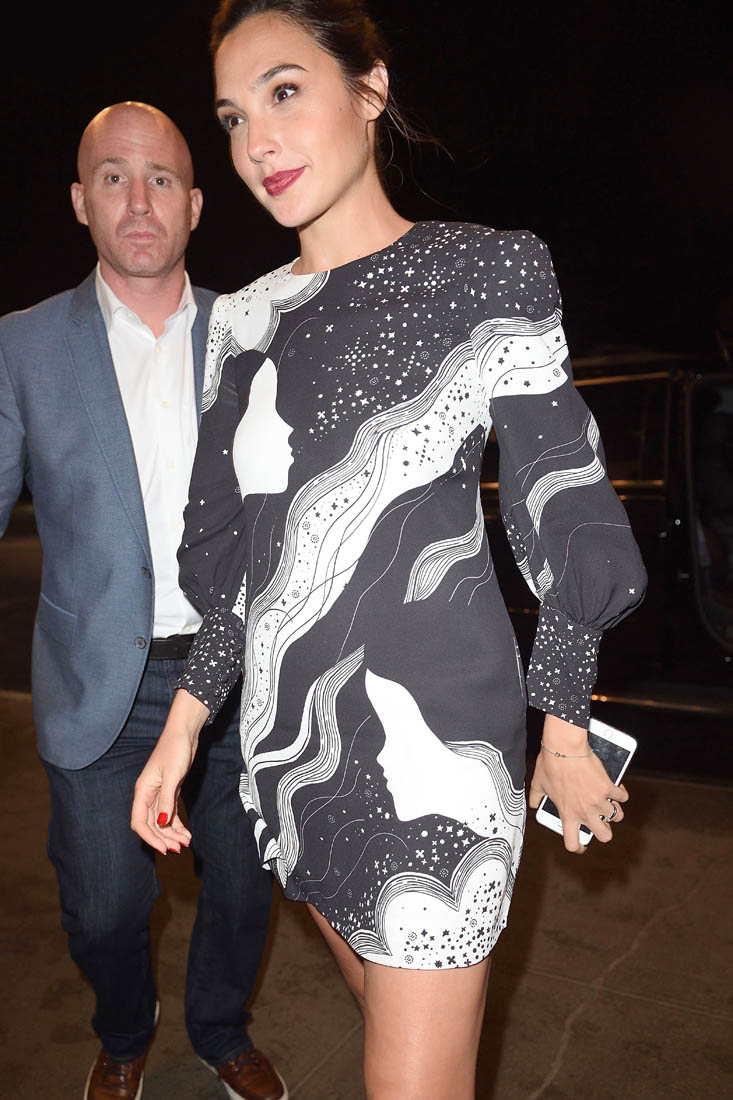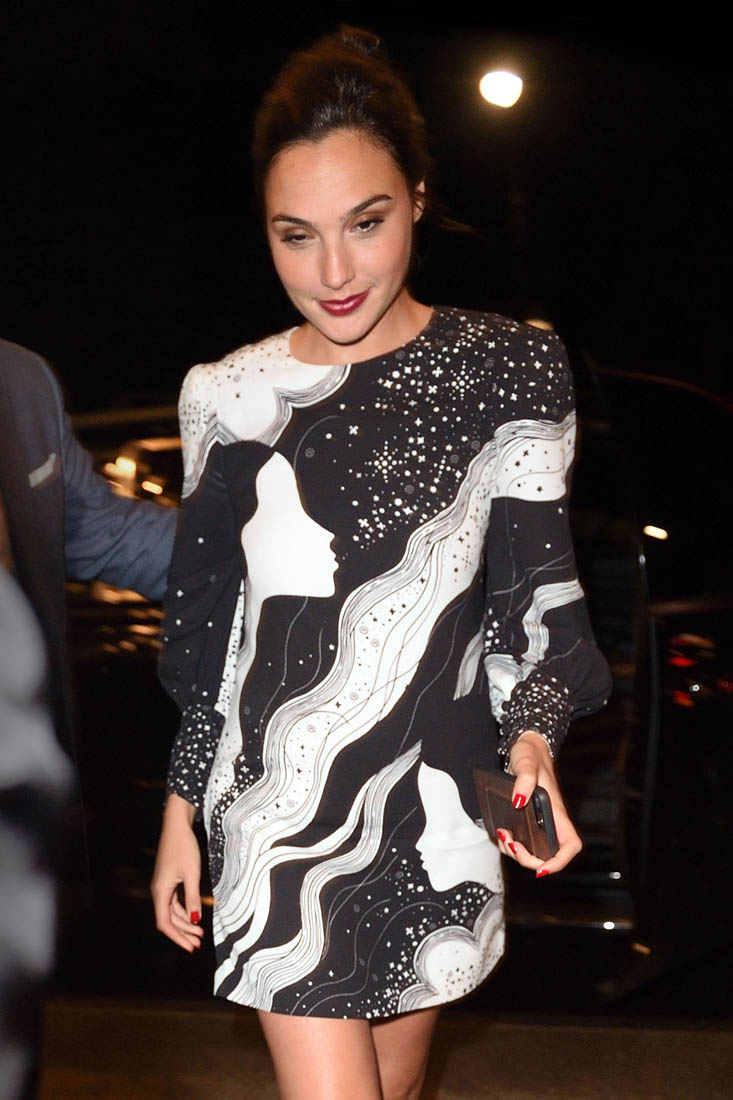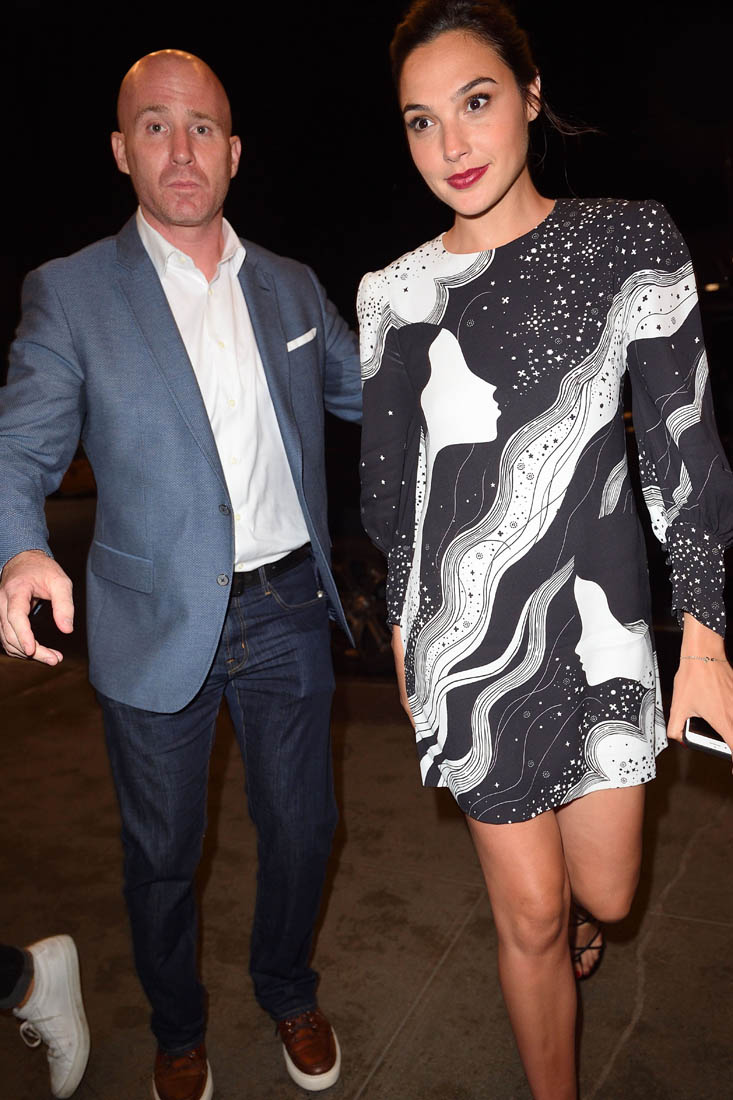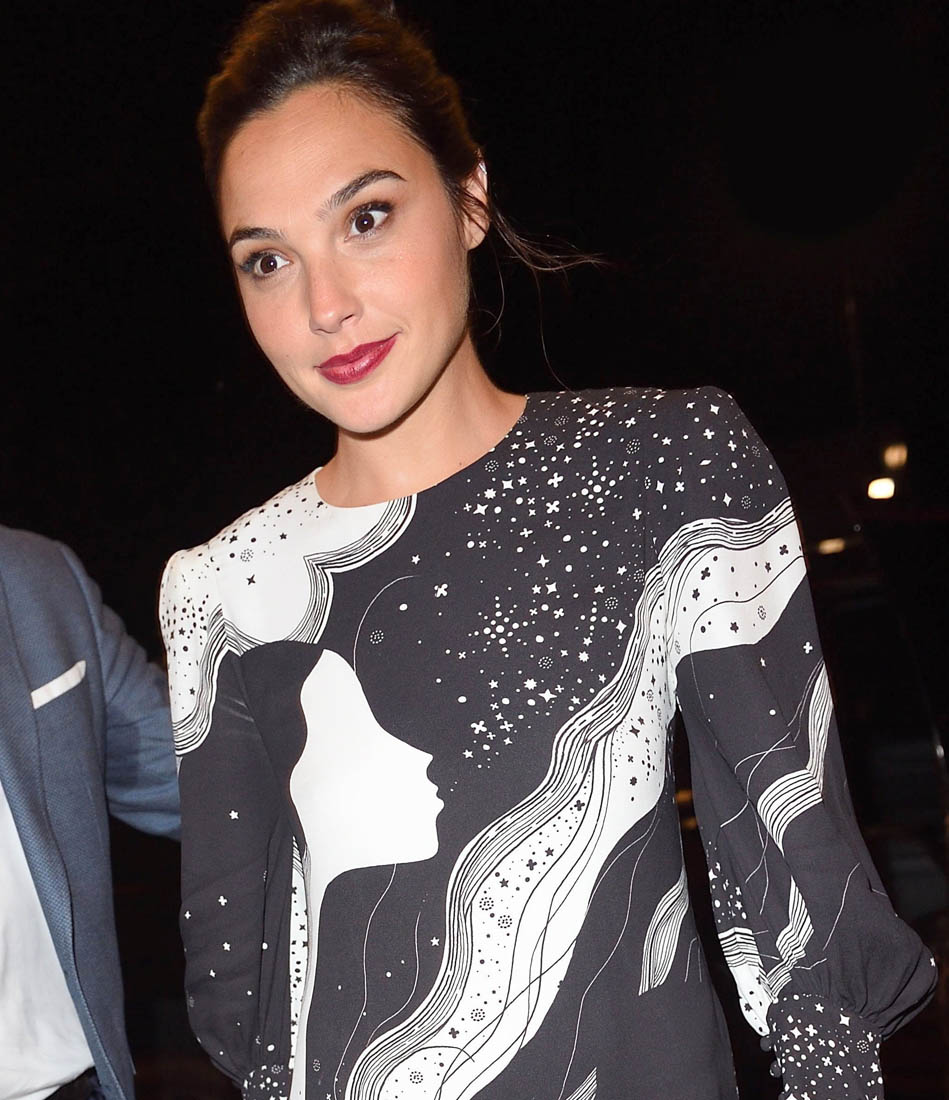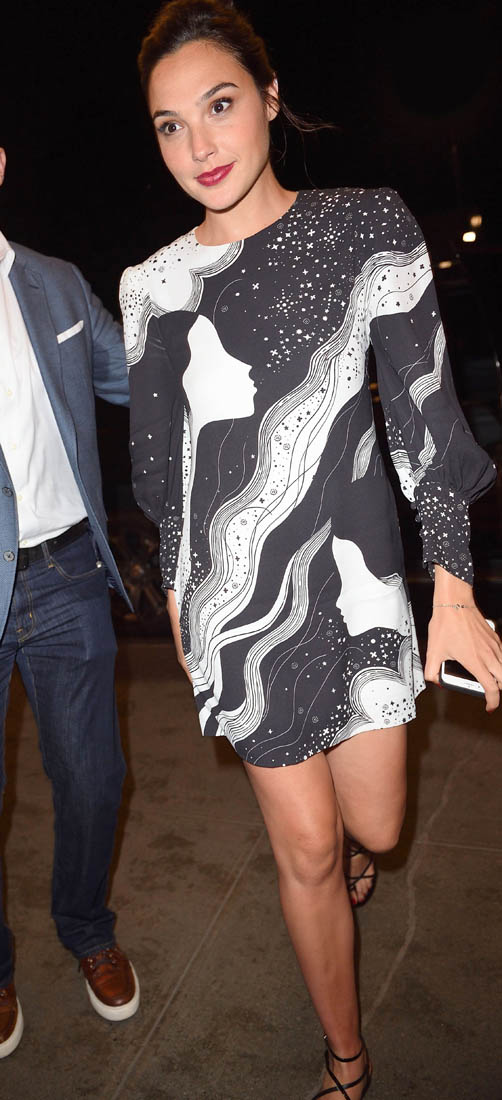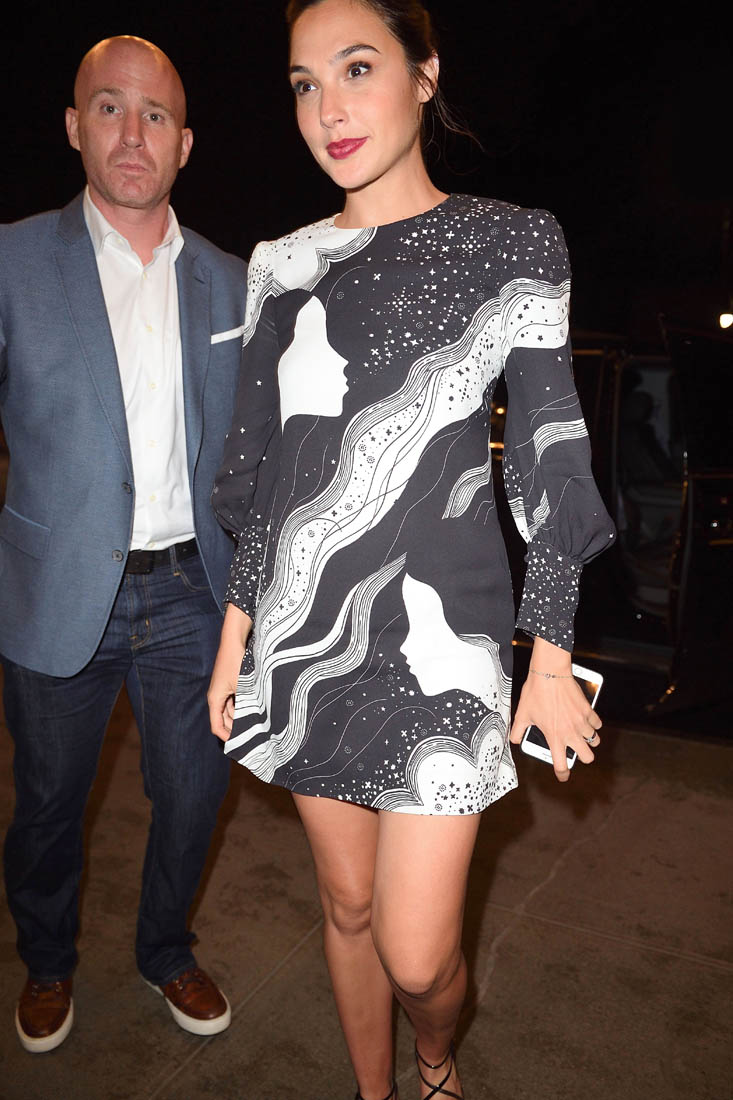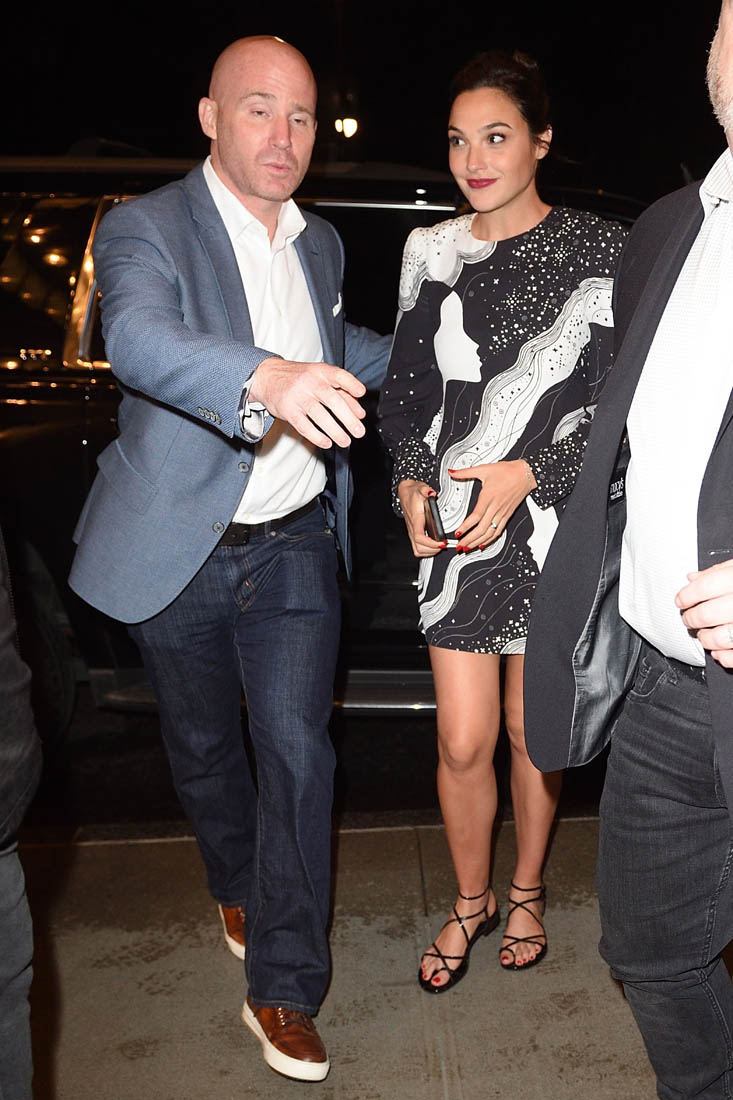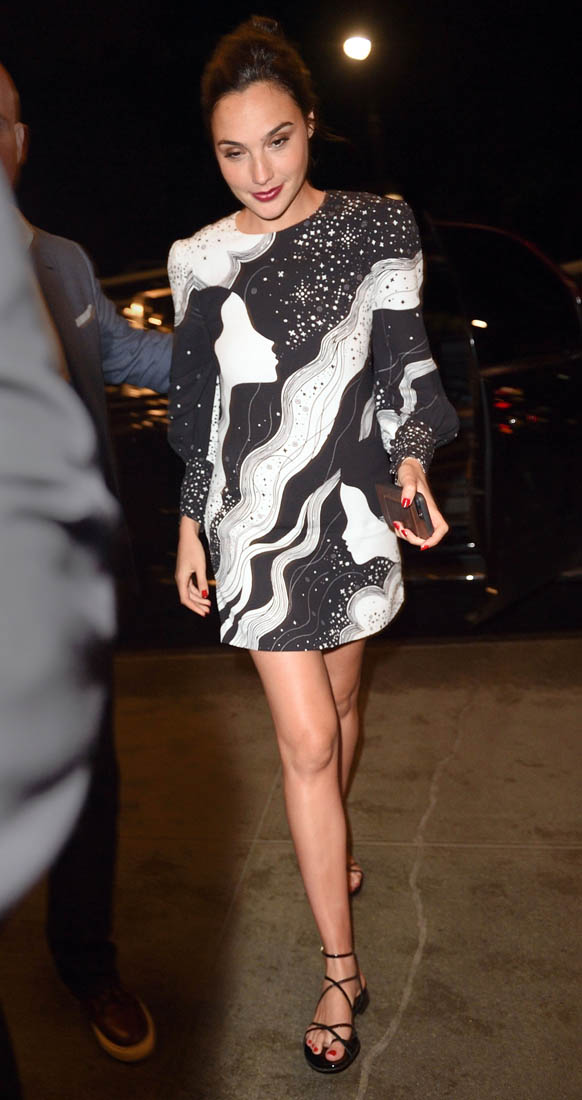Gal Gadot in Wonder Woman



Wonder Woman opens in Themyscira, the utopian home of the Amazons, where little Diana, daughter of Queen Hippolyta, longs for adventure and glory, while her mother tries to protect her from the harsh realities of life beyond their secluded haven. Themyscira is a beautiful setting, a Mediterranean island sketched in bold blues and greens, and the sight of women filling the screen—women fighting, laughing, talking, governing—stands in stark relief compared to average blockbuster fare.
Rescued from drowning by a grown Diana (Gal Gadot), Steve Trevor (Chris Pine) brings World War I to Themyscira, and Diana decides to go to the aid of mankind, rather than stay safe at home. Diana is naïve and determined, a fish out of water in 1918 London, who moves through the world as if she has every right to be wherever she is, which clashes with Edwardian, pre-suffrage propriety. Steve’s secretary, Etta Candy (Lucy Davis, TOTALLY DELIGHTFUL), takes to Diana immediately, but the film utterly wastes both Davis’s performance and the Diana-Etta connection. They barely speak to one another, and Etta virtually disappears five minutes after she’s introduced.
In fact, Diana spends very little time actually talking to and connecting with other women. There’s her mother, of course, and Antiope, but beyond them we see nothing of her life in Themyscira. Does she even have friends? She’s denied the opportunity to connect with Etta Candy, and after the mid-point of the film, the only other named woman on screen is a villain, Dr. Maru (Elena Anaya). Diana and Dr. Maru have one scene together and they do not speak.
This is the rot at the core of Wonder Woman—it’s just any old superhero movie. The lead might as well be Steve Trevor for all the screen time and character development he gets (it’s galling to realize that his feminine counterparts are NEVER written this well), and how little the fact that Diana is a woman truly matters to the plot. The first half of Wonder Woman feels interchangeable with Thor, the second half with Captain America: The First Avenger, and the character herself often feels like a mash-up of those two.
There is a lot to like about Wonder Woman though. Diana is a “true north” hero who is compassionate and fierce and won’t turn away from even the smallest of hurts. We desperately need a hero like that right now, and there is no denying the exuberant joy in seeing Diana take up her shield and step onto a battlefield, determined to save the day; she’s aided by Patty Jenkins’ considerable style, slickly applying Zack Snyder’s speed-ramping technique in the action scenes. And Pine and Gadot are terrific together, getting in good jokes as well as poignant scenes later in the film, and their chemistry is palpable. They flirt, they’re PG-13 sexy, and you believe the bond they forge on their quest to end the war.
But you can’t get around the tired formula, with its undercooked villains, third-act CGI monster, and utter wasting of a potential arch-nemesis who could have been compelling, given proper development. There are moments of real wit and emotion that land despite the formula nonsense, but Wonder Woman is hamstrung by a palpable sense of the male creative team—10 of 12 producers and all of the writers are men—not wanting to offend a male audience with an opinionated or—gasp—BOSSY superheroine.
Diana doesn’t need to kick anyone in the nuts, but it’s frustrating that the film deliberately dodges opportunities to have her directly confront female repression in the real world. Suffrage is mentioned once in passing and Diana is never given the chance to understand it, let alone address it. She goes into a council chamber where men gasp at the mere sight of her but is never made to understand how taboo her presence really is. Wonder Woman is the greatest feminist icon in comic books, but you’d never know it by her movie. Here, she’s as kick-ass as her male counterparts, and certainly more heroic than her Justice League fellows, but beyond the surface level of simply being a woman, there’s little to distinguish her from many of the dudes cluttering up the room.
For the most part, Wonder Woman is a breath of fresh air breezing through the superhero genre, filled with heart, humor, romance, tragedy, ass-kicking action, and a courageous and headstrong heroine. But in some ways Wonder Woman is just your standard origin story, burdened with all the usual problems of the superhero genre. It’s a MASSIVE improvement on the DC movies so far, but the constraint of Diana, making her as pleasing as possible lest she frighten anyone, keeps Wonder Woman from being a truly new take on the superhero genre at large.
Attached - Gal Gadot out in NYC last night to promote the film.
